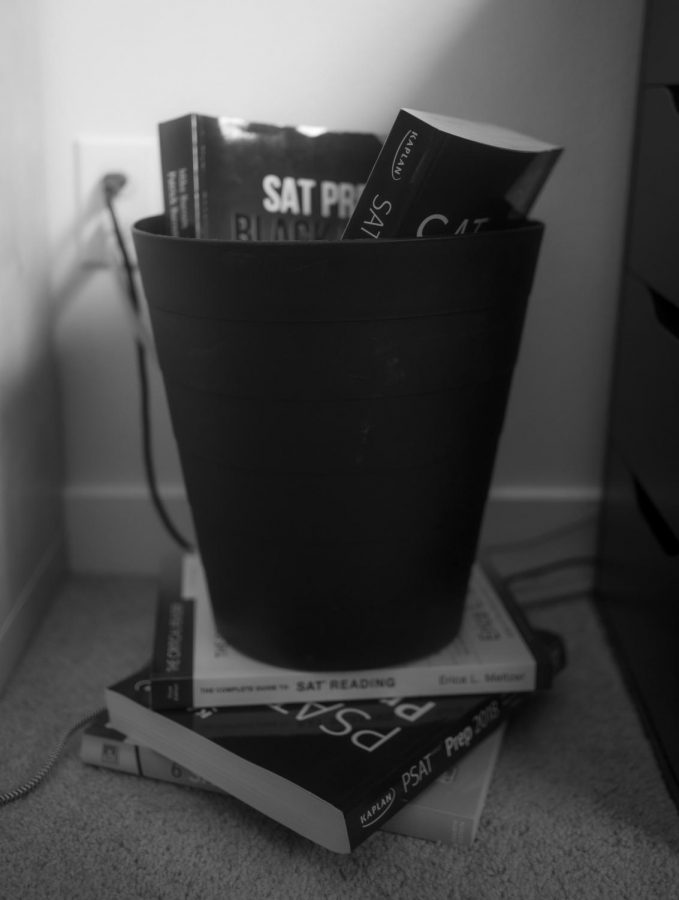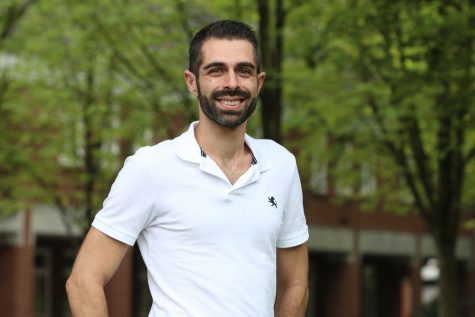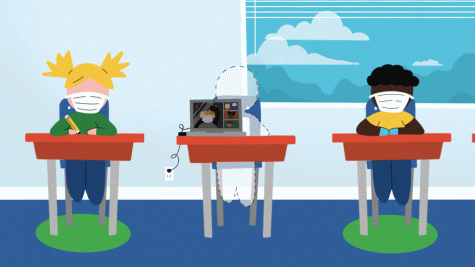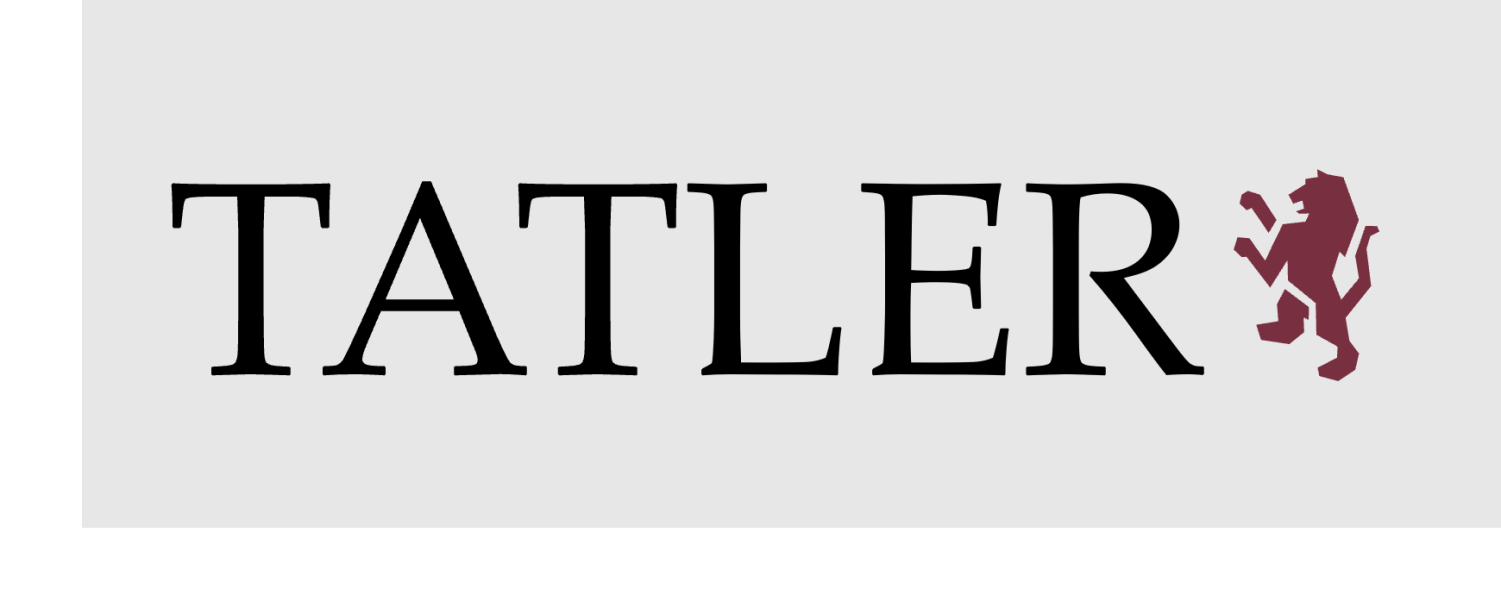Is Optional Optimal?
According to The National Center for Fair and Open Testing, or FairTest, two-thirds of US colleges have gone test-optional or -blind through fall 2021. For clarification, test-optionality and -blindness are policies by which a college will either 1) allow a student not to submit standardized test scores with their application or 2) ban a student from submitting standardized test scores with their application, respectively. The policies’ names are rather reflective of their upshots: for the majority of colleges, standardized testing (at least for now) is another choice, not unlike an extracurricular specially picked from a waiting roster. A select few colleges have taken things to the logical extreme, relegating standardized test scores to the dustbin of history. So the questions become: how should we, as Lakesiders, consider and react to these policies?
On their faces, test-optionality and -blindness seem like natural moves in our still-current COVIDian landscape. A byproduct of COVID prevention measures, economic inequality has raged this year. The artificial wealth currents we’ve seen this year are bound to breed more inequality downstream. On the topic of testing, lower-SES students all across America have found trouble this year getting access to the necessary ingredients for success: prep time, study materials, venues for test-taking, etc. The issue becomes even more noticeable through the lens of race, which has seen much application lately. So what of the proposed solutions: optionality, blindness? If testing merits less of a spotlight going forward, can’t colleges better select for the individual? Can’t they write off factors that should, honestly, have no bearing on the admissions process? Can’t they finally make good on their oft-repeated promise to “focus on what makes you unique, not some percentile or ranking”? Yes and no.
Much of the response from people I’ve talked to about college testing policies throughout this application cycle has been negative. A phrase was delivered to me that sums up the general consensus fairly well: “very not epic.” It makes sense why we Lakesiders would be offput by test-optionality and probably brought to a fugue state by test-blindness. Much of our time, regardless of grade level (though my sympathies go to the class of 2021, bless you all), is spent worrying about college. The number of hasty, bullet-listed college plans I’ve encountered is somewhat frightening, especially when I realize I have no thoughts on the subject (aside from “Is clown college a viable option for me?”). So much of our energy is spent trying to get ourselves in order for admissions. Throw in not just another variable, but a complete scale of variability on top of that, and suddenly gears catch and stop spinning, motors fizzle and die, and college plans are dashed. It’s more complication, but beyond that, it’s more competition.
Colleges can only accept so many applicants, as anyone knows. As such, the option to withhold such strategic information as standardized test scores adds a new element to the game theory of college-hunting. Suddenly, years spent developing a foundation for the SAT or ACT are years that spared too little time for self-development. Specifically, hitchhiking through rural America, taking up a job at NASA, or something similarly distinguishing. In summary, the game becomes more complex, more chaotic, and more cutthroat — adjectives that don’t suit the pursuit of education, crucial as it is in modern society. Having said all of this, I completely understand the opposition to test-optionality. Similar criticisms apply to test-blindness, though it’s a more charitable policy, in that there’s no such strategizing about test scores. But still, it opens up space for more strategies to develop for applicants to improve their chances of acceptance, and it spoils a lot of previous hard work.
Though rational, I’m inclined to believe these objections miss the forest for the trees. Intricacies of the college struggle aside, the two areas which updated test policies are touted as addressing — economic and racial inequality — aren’t actually addressed very much at all. Both categories of inequality, closely interlinked as they are, go beyond just access to standardized testing materials. As Mal Goss expounded in a recent college counseling meeting I had the privilege of attending, the eschewing of standardized testing itself, without all of the attached politics of COVID and America’s widening economic gulf, has a troubled history. Despite the appealing rhetoric of meritocracy, past pushes to noticeably depress the influence of test scores in college admissions have served to further codify discrimination. The key problem runs deeper than anyone cares to admit; its solution is perhaps not fully knowable. But the essential ingredients for educational opportunity and success are simply lacking for many people for no other reason than their SES or race, regardless of what relatively nominal changes are made to an institutional process that still bears its myriad biases.
Contrast this with Lakesiders: while not all wealthy, each of us is privileged in the classical sense. We have access to a vast network of personal and impersonal resources which will no doubt render us aid far into the future. It comes with the community we’re a part of, and it’s nothing to be ashamed of or repentant for. Still, the reality needs to be confronted. Each of us is in a better position than most other people in this country. Throw in COVID, and suddenly pandemic-related procedures that seem overly litigious (we have to keep Trace on all day??) are really prime examples of the durability of our community. We’ve weathered this pandemic remarkably well. This is while public institutions are, comparatively, in danger of slipping off the edge.
I suppose what I mean to say is that testing policies are just band-aids for the real problems at hand, decades-old and ballooning due to the pandemic. Such growing inequality, especially in the face of COVID, that there seem to be two worlds to our one nation: one whose inhabitants have the luxury of meditating on the virus, another whose inhabitants are just trying to make it through, same as any other time. The worlds aren’t cut-and-dry, and the line between them can become rather dissolved, but in the area of education — we’re in the first. And what is education if not the board from which the rest of a person’s life springs? Inadequate access to education, or plain inadequate education, is a sad reality that’s only shoved in our faces by every tit-for-tat match of economic stimulus played in Congress. To answer the questions I myself posed, we Lakesiders can consider test-optionality and -blindness policies however we want, and we can — no, should — fold them into our college models strategically. We all deserve to see the fruits of our hard work and dedication reflected in our chosen college. That’s just the rub: we all deserve as much. The only optional thing is being blind to that fact.





